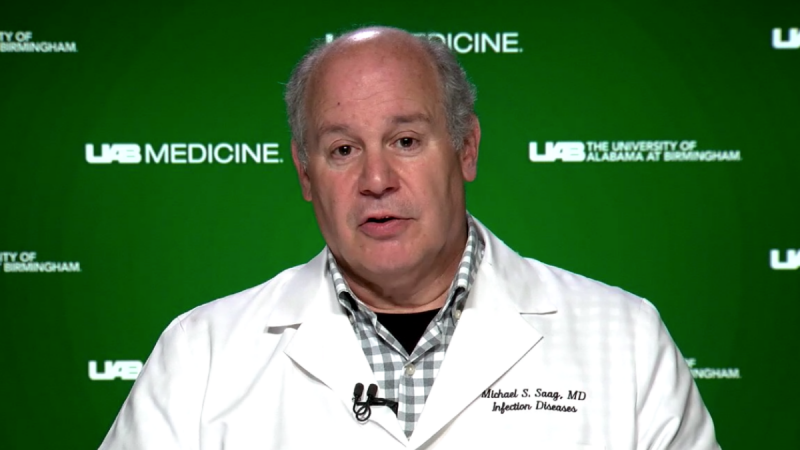Why Alabama’s Declining Vaccination Rate Could Spell An ‘Uncomfortable Summer’
Dr. Michael Saag, an infectious disease specialist at UAB, said he was concerned about declining rates of COVID-19 vaccination during a press conference on June 7.
After months of declining case numbers and hospitalizations, health experts are warning Alabama could soon see an uptick in COVID-19 infections.
The state’s vaccination rate ranks second to last nationwide, with just under 30% of residents fully vaccinated. And demand for the shot continues to plummet.
“I think we might be headed towards, I won’t call it a turbulent summer, but I will call it an uncomfortable summer,” said Dr. Michael Saag, an infectious disease specialist at the University of Alabama at Birmingham.
Even though most Alabamians are not fully protected against COVID-19, Saag said many residents have stopped wearing masks and have returned to activities like summer barbecues, sports games and other social gatherings.
“Somehow the messaging from CDC about ‘only fully vaccinated people being safe without a mask’ got lost in translation,” Saag said.
Alabama’s low vaccination rate presents a “very worrisome situation” that could possibly lead to a summer surge, according to Dr. Jeanne Marrazzo, who spoke to NPR’s Here & Now.
“People see that things are getting better,” Marrazzo said. “So I think the urgency has really come down. That’s informed a sense of complacency.”
Both doctors said that more residents, especially adults under the age of 40, need to get vaccinated to prevent the spread of more infectious variants.
In recent weeks, Birmingham city leaders and health officials have started offering financial incentives for residents to get a shot.
Saag said that could help reach some people, but more targeted messaging is necessary to combat vaccine hesitancy.
He predicted that Alabama “won’t be anywhere close” to reaching President Biden’s goal of getting 70% of the state’s population at least one dose of the COVID-19 vaccine by July 4.
Once praised, settlement to help sickened BP oil spill workers leaves most with nearly nothing
Thousands of ordinary people who helped clean up after the 2010 BP oil spill in the Gulf of Mexico say they got sick. A court settlement was supposed to help compensate them, but it hasn’t turned out as expected.
Q&A: How harm reduction can help mitigate the opioid crisis
Maia Szalavitz discusses harm reduction's effectiveness against drug addiction, how punitive policies can hurt people who need pain medication and more.
The Gulf States Newsroom is hiring a Community Engagement Producer
The Gulf States Newsroom is seeking a curious, creative and collaborative professional to work with our regional team to build up engaged journalism efforts.
Gambling bills face uncertain future in the Alabama legislature
This year looked to be different for lottery and gambling legislation, which has fallen short for years in the Alabama legislature. But this week, with only a handful of meeting days left, competing House and Senate proposals were sent to a conference committee to work out differences.
Alabama’s racial, ethnic health disparities are ‘more severe’ than other states, report says
Data from the Commonwealth Fund show that the quality of care people receive and their health outcomes worsened because of the COVID-19 pandemic.
What’s your favorite thing about Alabama?
That's the question we put to those at our recent News and Brews community pop-ups at Hop City and Saturn in Birmingham.








